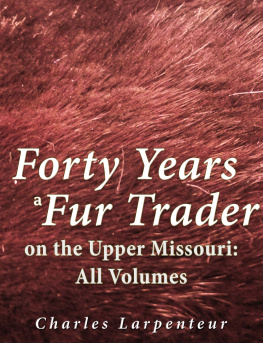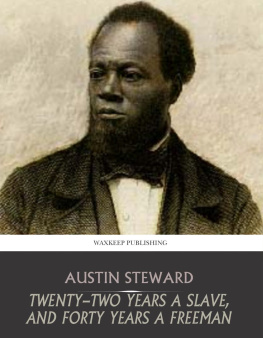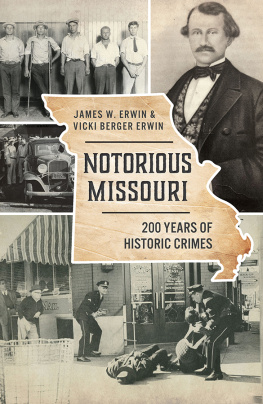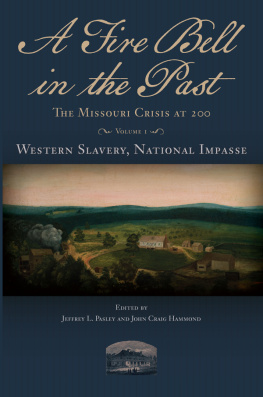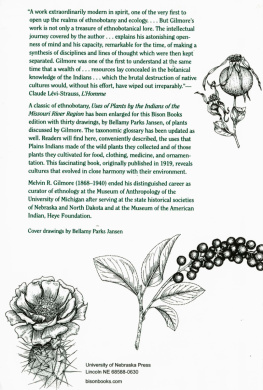Charles Larpenteur - Forty Years a Fur Trader on the Upper Missouri: All Volumes
Here you can read online Charles Larpenteur - Forty Years a Fur Trader on the Upper Missouri: All Volumes full text of the book (entire story) in english for free. Download pdf and epub, get meaning, cover and reviews about this ebook. year: 2018, publisher: Charles River Editors, genre: Non-fiction. Description of the work, (preface) as well as reviews are available. Best literature library LitArk.com created for fans of good reading and offers a wide selection of genres:
Romance novel
Science fiction
Adventure
Detective
Science
History
Home and family
Prose
Art
Politics
Computer
Non-fiction
Religion
Business
Children
Humor
Choose a favorite category and find really read worthwhile books. Enjoy immersion in the world of imagination, feel the emotions of the characters or learn something new for yourself, make an fascinating discovery.
- Book:Forty Years a Fur Trader on the Upper Missouri: All Volumes
- Author:
- Publisher:Charles River Editors
- Genre:
- Year:2018
- Rating:5 / 5
- Favourites:Add to favourites
- Your mark:
- 100
- 1
- 2
- 3
- 4
- 5
Forty Years a Fur Trader on the Upper Missouri: All Volumes: summary, description and annotation
We offer to read an annotation, description, summary or preface (depends on what the author of the book "Forty Years a Fur Trader on the Upper Missouri: All Volumes" wrote himself). If you haven't found the necessary information about the book — write in the comments, we will try to find it.
Forty Years a Fur Trader on the Upper Missouri: All Volumes is a classic account of the hardships encountered on the frontier. The original illustrations are included.
Forty Years a Fur Trader on the Upper Missouri: All Volumes — read online for free the complete book (whole text) full work
Below is the text of the book, divided by pages. System saving the place of the last page read, allows you to conveniently read the book "Forty Years a Fur Trader on the Upper Missouri: All Volumes" online for free, without having to search again every time where you left off. Put a bookmark, and you can go to the page where you finished reading at any time.
Font size:
Interval:
Bookmark:
HUMAN DOCUMENTS ARE ALWAYS INTERESTING, and those which attest the development of the Great West will claim rightful place in literature till the final word concerning that to which they relate shall have been spoken. Such finality in Western history is still afar; it is to be attained by none now living. The field of research is much too wide; and if it be not exactly virginal, nor even have lain quite fallow, the workmen are as yet too few to gather in the immense outstanding crop. The history of what Transmississippian State or Territory has been brought fully up to date? That of not one. Young as most of them are in comparison with a Massachusetts or a Virginia, some are older by far than their reputed ancestors; Arizona and New Mexico had quite a literature before any Plymouth Rock or Jamestown acquired a place on map or in mind. Reviewing what has been done already for the better settled side of the great river, I am oppressed by a sense of the story yet to be told of the biggest half of the American commonwealth. Now is none too early to cease to be inarticulate in the parts we have to perform; for the plot thickens and the setting of the stage is splendid. Let us speedily utilize our properties; they are readily accessible, and they abound; they should not be suffered to lapse with fugacious years in the insatiable maw of Time the cosmic cannibal, the ceaseless corroder and obliterator, alike the progenitor of all things and their relegator to forgetfulness.
Lest we too may forget, I wish to do my share as a curator of historical materials, even if I may not aspire to the office of historian. Among my beliefs is that of the prime utility of contemporaneous documents for historical purposes. These are the great antiseptics to the ptomaines of traditionthe stocky facts so fatal to mythopoetic microbes. Much history so called may be the Carlylese distillation of rumors, or the Napoleonic fable agreed upon; but much more may be relieved of any such imputation if we do our duty by our documents. It would surprise most persons to realize how quickly a neglected core of fact gathers the mold of myth. Take the Lewis and Clark expedition, for example. Never, perhaps, was a true story more minutely and completely told; to know all about it, we have only to read what the explorers themselves had to say, less than one hundred years ago. But the take-it-for-granters, the forsoothers, the forgetters, the prevaricators, the misquoters, the unreadersthe whole tribe of quidnunc impressionistshave meanwhile found out more things that never happened in this case than they ever learned about what did happen. According to such authorities, there are few early years of this century in which Lewis and Clark were not traveling; fewer routes they did not take across the continent; and fewest of all are the places in the Rocky mountains where they did not pass one or two winters. Many persons who live in the shadow of Pikes Peak never knew the initials of his name; some think he was Albert Pike, the great Freemason; some never thought anything about it; and nearly all suppose that one Pike discovered and surmounted the peak which bears his name. Yet anyone who should take the trouble to consult the very original document which Pike himself has handed down to us would learn all there is to be known on that particular point.
The history of the West is still largely the story of discovery, exploration, survey, colonization, and the like; for aught else is of comparatively recent developmentis contemporaneous, or nearly such. The bison was the original engineer, who followed the lay of the land and the run of the water; the Indian followed the bison; the white man followed the Indian; the gun and trap, the pick and shovel, the whiskey-jug, plow, and locomotive followed the white man, at little if any interval: this is the order of empire westward. Every step of this succession is of absorbing interest and momentous consequence; perhaps none more so than those taken during what I may style the picturesque period, when the plain was furrowed not by the plow but by the hoof of the bison, when no Indian war-whoop had been silenced by a steam-whistle, when the trapper and trader were romantic figures in scenes untamed to more prosaic industries. Such times as these call for chroniclers; and it is the purpose of the American Explorer Series , of which the present volumes form a continuation, to traverse this historic ground, perhaps to cultivate some corners of this fruitful field. What results may be expected are instanced in the case of the Journal of Jacob Fowler, with which the series began. Whoever heard of it, or of its author, till this year of grace 1898? A floating paragraph in one or two not well-known books was to the vague effect that a trader named Glenn took a party to Santa Fe in 1822that was all. Now we have the narrative of that enterprise, complete in every detail, in an authentic, genuine, original, contemporaneous human documentand of such is the kingdom of history.
Few persons now living may measure the full importance of the Fur Trade as a factor in the development of what has been called the wild and woolly-West thereby giving occasion for Lummis witty retort upon a tame and cottony East. Fewer still can be aware of what iniquities and atrocities the seamy side of that indispensable industry reveals. Those who have read the Journals of Alexander Henry and David Thompson have had their eyes opened to the systematic swindling and debauching of Indians which characterized the traffic as conducted in Canada and some portions of the United States, and may readily believe that the pursuit of pelf in pelt was always tarred with the same stick. This identical subjectintrinsically important, in some respects repellent, never failing of tragic interest, albeit sordid and squalidis continued in the autobiography of Charles Larpenteur.
As Fowlers Journal and Fowler himself were until this year, so have Larpenteur and his narrative been hithertounknown. The latter, like the former, will be found composed of the very fiber that goes to the web of history. It is a notable and entirely novel contribution to our knowledge of the Fur Trade of the Upper Missouri for a period of more than an average lifetime, by one who lived the life and worked his way through it, from the position of a mere hand to that of one of its heads. Among other conclusions we may draw from this narrative, it would appear that the unpalliated and unmitigated evils were inherent in the system of traffic itself, red and white natures being what they respectively were; that there was a smoother than the seamy side of the business; that a good, kindly man might be about it, and die poor but honest; and that it called out some of the best as well as the worst of human qualitiessome of the most manly, even heroic, traits, remote from cupidity and cruelty.
The circumstances under which Larpenteurs manuscript came into my possession are to be here noted. One day in 1872, when my friend and then brother-officer of the medical corps of the army, Dr. Washington Matthews, was at Fort Buford, he received from the author a letter, the material portions of which I copy literally from the original now before me, as follows:
Little Sioux March the first. 1872
Doctr
Washington Mathew
Dear Sir
Your kind favor was received on the 29th ult. And was pleased to learn that you was well as well as all the folks, and that Buford was progressing so fast. I would like very much to see the old place again. I Cannot take any more Comfort down here, particularly after the death of my little boy...
Font size:
Interval:
Bookmark:
Similar books «Forty Years a Fur Trader on the Upper Missouri: All Volumes»
Look at similar books to Forty Years a Fur Trader on the Upper Missouri: All Volumes. We have selected literature similar in name and meaning in the hope of providing readers with more options to find new, interesting, not yet read works.
Discussion, reviews of the book Forty Years a Fur Trader on the Upper Missouri: All Volumes and just readers' own opinions. Leave your comments, write what you think about the work, its meaning or the main characters. Specify what exactly you liked and what you didn't like, and why you think so.

